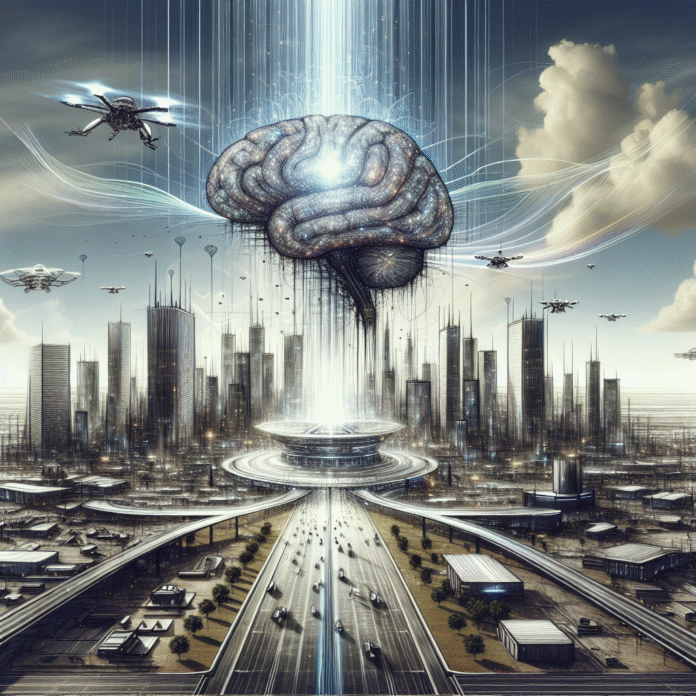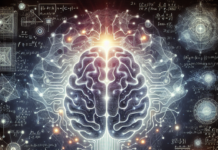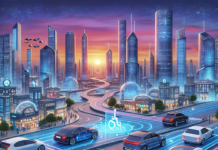Artificial Intelligence (AI) is no longer a concept confined to the realm of science fiction; it has evolved into a powerful force reshaping industries across the globe. By leveraging advanced algorithms, big data, and machine learning, AI is revolutionizing how businesses operate, enhances customer experiences, and drives innovations. From healthcare to finance, logistics, and beyond, the impact of AI is profound and transformative.
1. Healthcare: Revolutionizing Patient Care
In the healthcare sector, AI is making significant strides in diagnostics, treatment recommendations, and patient care. Machine learning algorithms can analyze medical images with remarkable accuracy, assisting radiologists in detecting conditions such as tumors or fractures. For instance, companies like IBM Watson are using AI to help healthcare providers make more informed decisions about patient treatment plans based on vast datasets.
Moreover, AI-powered chatbots are improving patient engagement by providing instant answers to inquiries, managing appointments, and even offering mental health support. This not only enhances patient satisfaction but also allows healthcare professionals to focus on more complex tasks.
2. Finance: Enhancing Risk Management and Customer Experience
The financial sector is harnessing AI to streamline operations, mitigate risk, and improve customer service. AI algorithms can analyze transaction patterns to detect fraudulent activities, ensuring robust security for financial institutions. Furthermore, AI-driven predictive analytics enable banks to assess credit risk more accurately, facilitating better lending decisions.
Personal finance apps powered by AI offer tailored advice to users, encouraging better financial habits and investment strategies. Robo-advisors, utilizing AI, provide automated planning services at a fraction of the cost of human advisors, making investment more accessible to a broader audience.
3. Retail: Transforming Consumer Experiences
In the retail industry, AI is enhancing the shopping experience from initial interaction to post-purchase support. With AI-driven recommendation engines, retailers can analyze customer behavior and preferences to suggest products that are more likely to convert into sales. This personalization not only boosts sales but also fosters customer loyalty.
Bricks-and-mortar stores are employing AI technologies such as smart mirrors and virtual fittings to improve the shopping experience, while inventory management powered by AI ensures optimal stock levels, reducing waste and enhancing supply chain efficiency.
4. Manufacturing: Optimizing Production Processes
Manufacturing is undergoing a dramatic transformation with the integration of AI and automation. Smart factories powered by AI can predict equipment failures, schedule maintenance, and optimize production schedules. This predictive maintenance reduces downtime and enhances productivity, leading to cost savings.
AI sensors facilitate real-time data collection and analysis, allowing manufacturers to adapt rapidly to changing market demands and streamline their operations. Robotics, augmented by AI, is increasingly taking on tasks that require precision, further improving production efficiency.
5. Transportation and Logistics: Redefining Mobility
AI is playing a pivotal role in the evolution of transportation and logistics. Autonomous vehicles are leading the charge, with companies like Tesla and Waymo steering the development of self-driving technology. This promises to revolutionize personal transportation and freight logistics, reducing the need for manual driving and increasing safety.
AI also enhances supply chain efficiency by predicting demand fluctuations and optimizing delivery routes, thereby cutting costs and improving delivery times. Advanced AI logistics systems can analyze vast amounts of data to ensure that products arrive at the right place and time.
6. Education: Personalizing Learning Experiences
The education sector is leveraging AI to provide personalized learning experiences that cater to individual student needs. Adaptive learning platforms utilize AI to assess students’ strengths and weaknesses, offering tailored resources and lesson plans to improve learning outcomes.
AI can also automate administrative tasks, allowing educators to focus more on teaching rather than paperwork. Chatbots can assist students with administrative inquiries, providing immediate support and enhancing overall student satisfaction.
Conclusion: The Future of AI in Industries
As AI technology continues to advance, its implications will reach far beyond the industries discussed. Ethical considerations, workforce implications, and the need for a regulatory framework will be crucial topics as AI becomes further entrenched in our daily lives.
Embracing AI offers businesses the opportunity to innovate, streamline processes, and enhance customer experiences. However, it also necessitates a thoughtful approach to ensure that the deployment of AI is beneficial and equitable for society as a whole. The rise of AI is not merely a technological evolution; it represents a fundamental shift in how industries operate and engage with the world. As we look to the future, embracing this technology responsibly will be key to unlocking its full potential.







